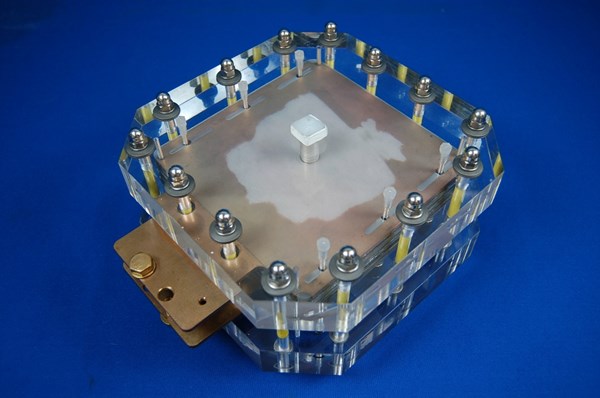Graphite-Filled PP Combines Flexibility and Conductivity
This new approach boosts mechanical properties while maintaining electrical conductivity.
This new approach boosts mechanical properties while maintaining electrical conductivity.
Germany’s Institute of Plastics Processing (IKV), along with Skilled Crafts at RWTH Aachen University, has been developing a new approach for the production of graphite-filled PP compounds, which thus far, appear to combine flexibility with high electrical conductivity.
The researchers claim the new, highly-filled thermoplastic compound boasts significant advantages over currently used materials, including reduced brittleness, longer service life in the fuel cell, and low reject rates.
The research project’s goal is to improve the compound’s mechanical properties compared to existing materials while maintaining the same electrical conductivity. Researchers first produced a blend of PP and an elastomer in order to boost the matrix material’s elasticity, and then incorporated a mixture of selected, electrically-conductive graphite fillers.
The researchers aimed to keep the filler content as low as possible while ensuring the necessary electrical conductivity for the particular applications. They demonstrated the potential usability of the new compounds by producing bipolar plates for fuel cells.
Together with various project partners, IKV is moving on with the development of a process in which the conductive part of the bipolar plate is compression molded from the highly-filled compounds, then overmolded by injection molding, and finally joined to form a composite part.
They stress that it is important that the bipolar plates be welded securely to one another to ensure that they are gas-tight, and also that process reliability and high efficiency are ensured. This joining technology is being systematically developed at IKV. The composite material is subsequently tested in the fuel cell under conditions likely to be encountered in practice.
This joint project is financed by the German Federal Ministry of Education and Research (BMBF) over a period of years. The other partners are Allod Werkstoff, Burgbenheim, Calorplast Warmetechnik, Krefeld, Eisenhuth, Osterode am Harz, Kessen Maschinebau, Essen bei Oldenburg, Leibniz Institute for Polymer Research, Dresden, and Protech in Pfullingen.

Related Content
-
ICIS Launches: Ask ICIS Generative AI Commodities Assistant
Said to be the first of its kind, this AI assistant will enhance access to ICIS’ intelligence and insights for the energy and chemical markets.
-
GEON Performance Solutions Buys PolymaxTPE
Combined company aims to be global leader in thermoplastic elastomers.
-
Automotive TPVs Formulated with Scrap
Latest addition to Teknor Apex Sarlink is offered with up to 40% post-industrial scrap. Can be extruded or molded.







